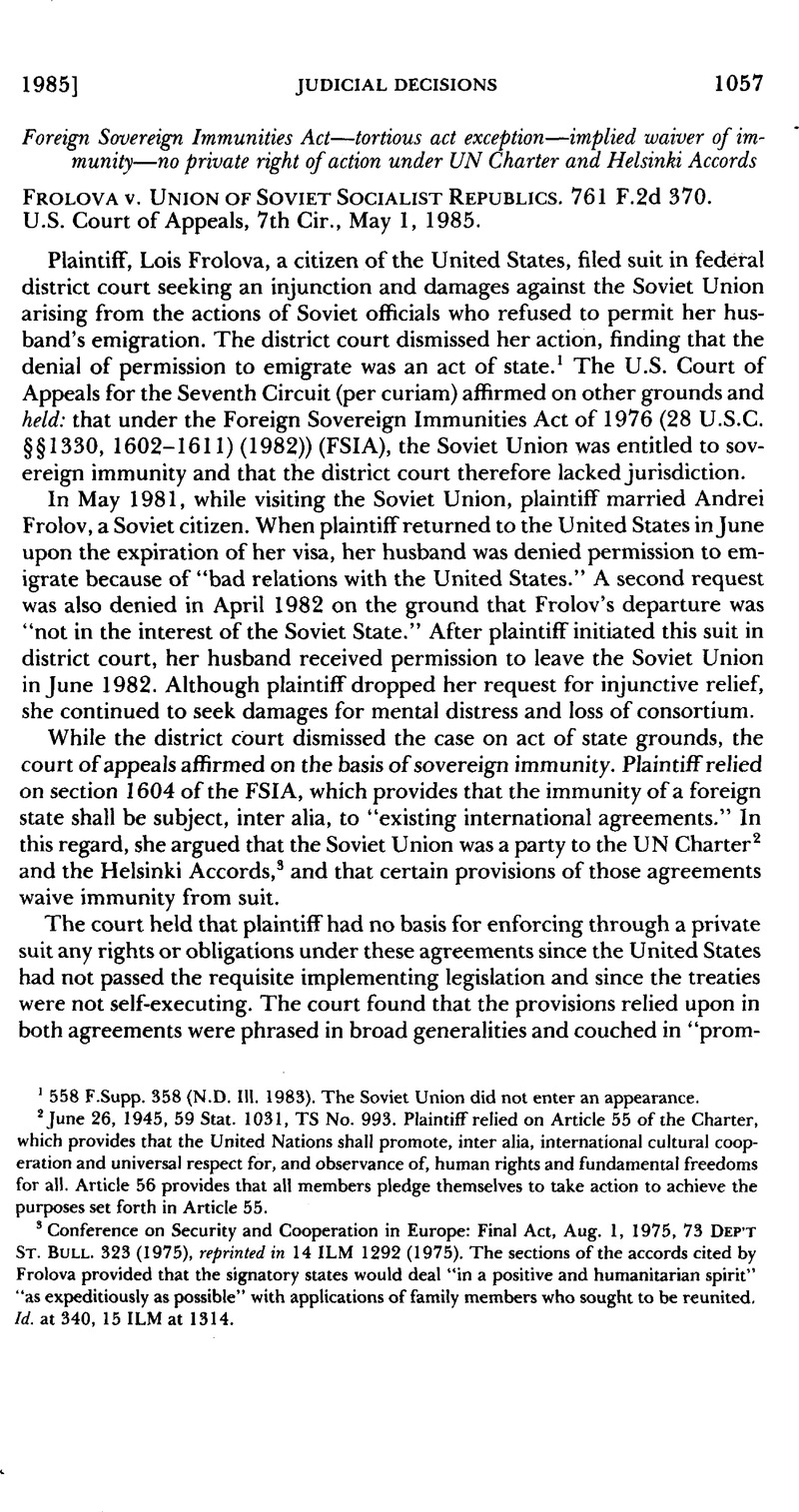No CrossRef data available.
Published online by Cambridge University Press: 27 February 2017

1 558 F.Supp. 358 (N.D. III. 1983). The Soviet Union did not enter an appearance.
2 June 26, 1945, 59 Stat. 1031, TS No. 993. Plaintiff relied on Article 55 of the Charter, which provides that the United Nations shall promote, inter alia, international cultural cooperation and universal respect for, and observance of, human rights and fundamental freedoms for all. Article 56 provides that all members pledge themselves to take action to achieve the purposes set forth in Article 55.
3 Conference on Security and Cooperation in Europe: Final Act, Aug. 1, 1975, 73 Dep’t St. Bull. 323 (1975), reprinted in 14 ILM 1292 (1975). The sections of the accords cited by Frolova provided that the signatory states would deal “in a positive and humanitarian spirit” “as expeditiously as possible” with applications of family members who sought to be reunited. Id. at 340, 15 ILM at 1314.
4 See H.R. Rep. No. 1487, 94th Cong., 2d Sess. 18, reprinted in 1976 U.S. Code Cong. & Ad. News 6604, 6617; S. Rep. No. 1310, 94th Cong., 2d Sess. 18 (1976). The legislative history cites as examples of implied waivers: (1) a foreign state’s agreeing to arbitration in another country; (2) a foreign state’s agreeing that a contract is governed by the law of another country; and (3) a foreign state’s filing a responsive pleading in a case without raising an immunity defense. ,
5 761 F.2d 370, 378. See, e.g., Berkovitz v. Islamic Republic of Iran, 735 F.2d 329, 333 (9th Cir.), cert, denied, 105 S.Ct. 510 (1984).
6 761 F.2d at 378. See Canadian Overseas Ores Ltd. v. Compania de Acero del Pacifico S.A., 727 F.2d 274, 277–78 (2d Cir. 1984).
7 The court apparently confused the characterization of the statute as providing a “waiver” of immunity. See 761 F.2d at 379. The provision, however, is styled as an “exception” to immunity. See 28 U.S.C. §1605(a)(5) (1982).
8 See, e.g., Persinger v. Islamic Republic of Iran, 729 F.2d 835, 842-43 (D.C. Cir.), cert. denied, 105 S.Ct. 247 (1984); Asociacion de Reclamantes v. United Mexican States, 735 F.2d 1517, 1524–25 (D.C. Cir. 1984), cert, denied, 105 S.Ct. 1751 (1985); Olsen by Sheldon v. Government of Mexico, 729 F.2d 641, 645–46 (9th Cir.), cert, denied, 105 S.Ct. 295 (1984); In re SEDCO, Inc., 543 F.Supp. 561, 567 (S.D. Tex. 1982).